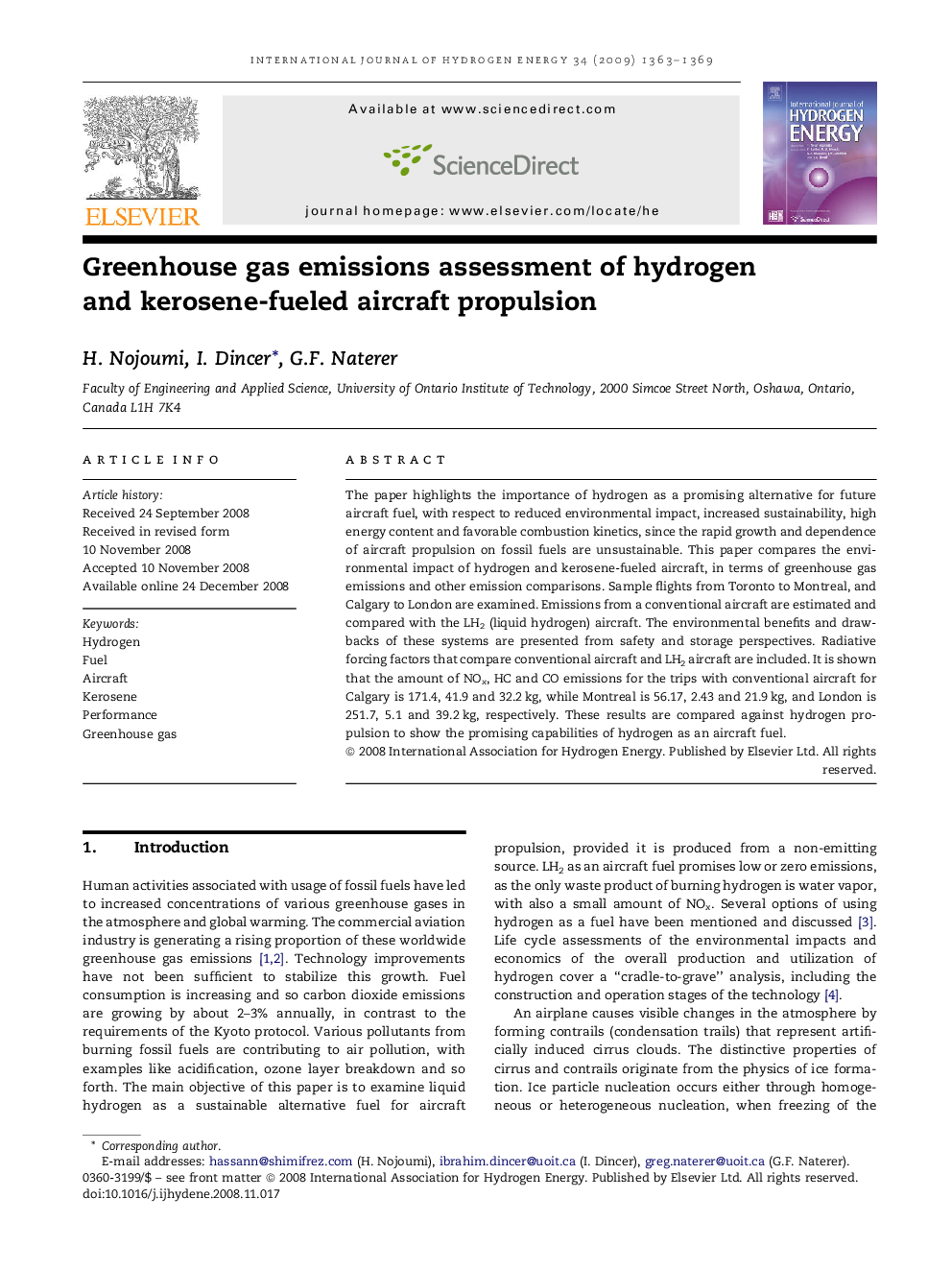| Article ID | Journal | Published Year | Pages | File Type |
|---|---|---|---|---|
| 1283344 | International Journal of Hydrogen Energy | 2009 | 7 Pages |
The paper highlights the importance of hydrogen as a promising alternative for future aircraft fuel, with respect to reduced environmental impact, increased sustainability, high energy content and favorable combustion kinetics, since the rapid growth and dependence of aircraft propulsion on fossil fuels are unsustainable. This paper compares the environmental impact of hydrogen and kerosene-fueled aircraft, in terms of greenhouse gas emissions and other emission comparisons. Sample flights from Toronto to Montreal, and Calgary to London are examined. Emissions from a conventional aircraft are estimated and compared with the LH2 (liquid hydrogen) aircraft. The environmental benefits and drawbacks of these systems are presented from safety and storage perspectives. Radiative forcing factors that compare conventional aircraft and LH2 aircraft are included. It is shown that the amount of NOx, HC and CO emissions for the trips with conventional aircraft for Calgary is 171.4, 41.9 and 32.2 kg, while Montreal is 56.17, 2.43 and 21.9 kg, and London is 251.7, 5.1 and 39.2 kg, respectively. These results are compared against hydrogen propulsion to show the promising capabilities of hydrogen as an aircraft fuel.
